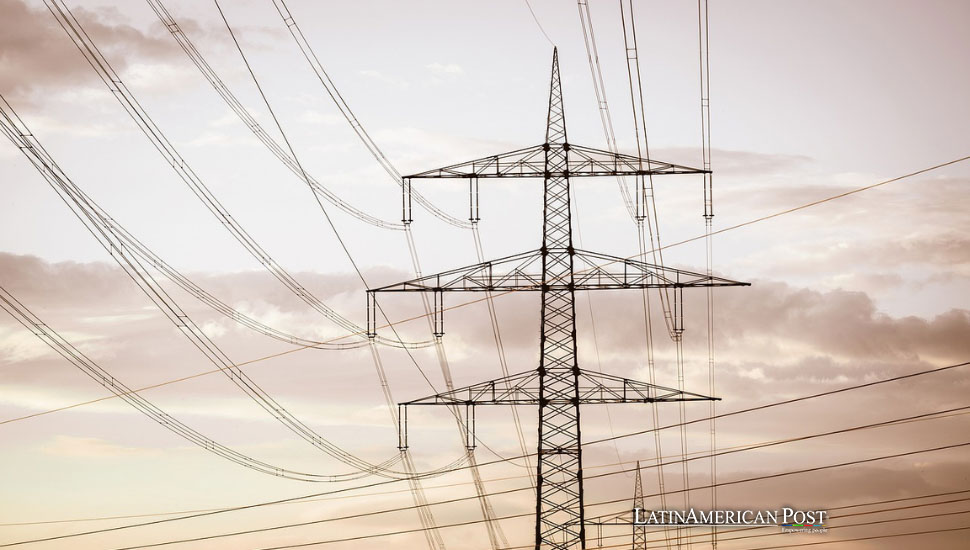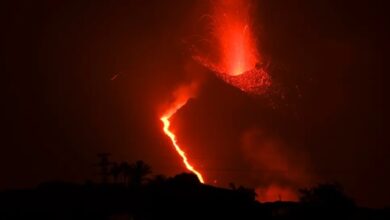Cuban Energy Crisis Disrupts Businesses and Daily Life

The ongoing energy crisis in Cuba, marked by frequent blackouts and an unpredictable fuel supply, is severely impacting the country’s nascent private sector. Since 2021, more than 10,000 small businesses have been authorized and now face significant challenges.
The energy crisis in Cuba, characterized by the sporadic breakdowns of outdated Soviet-era power plants and an erratic fuel supply from abroad, is wreaking havoc on the island’s burgeoning private sector. Since 2021, the Cuban government has authorized over 10,000 small businesses, but these enterprises are now struggling to cope with frequent and prolonged power outages.
Since May, blackouts have intensified, affecting up to 40% of the country simultaneously on some days. President Miguel Díaz-Canel has acknowledged that certain areas experience power cuts of up to 20 hours daily. Havana, typically shielded from the worst crisis, has had to implement measures. The state-run electricity company, Unión Eléctrica (UNE), has divided the capital into blocks, scheduling alternating four-hour blackouts in the mornings and afternoons.
One example of the impact on businesses is a Havana ice cream shop that has had to cut its production by up to three-quarters over the past two months due to frequent power cuts. Carla, the owner who prefers to remain anonymous, shared her daily struggles with the energy crisis, where power outages are extended, daily, and unpredictable.
“I understand that the state lacks funds to buy oil or repair the power plants. But why are those of us who chose to invest in this country with our own money left on our own?” Carla questioned. Despite the challenges, she has managed to keep her business running, thanks to a formula that keeps her ice cream from melting during the four-hour blackouts. However, she faces another problem: “I make the ice cream at a different location and use a generator when the power goes out. But my generator recently broke, and I haven’t been able to find another one because everyone is buying them now,” she lamented.
New Routines and Adaptation
Many business owners have had to adapt their daily routines to cope with the power cuts. Vincent Maillard, a 55-year-old Swiss national who has lived in Cuba for two decades and owns a bakery in the Vedado neighborhood of Havana, organizes his ten employees to complete tasks requiring electricity before the scheduled blackout.
“The advantage we have here in Havana is that the blackouts are scheduled. So we are prepared and can organize ourselves perfectly well, although it’s not ideal,” Maillard told EFE. However, this is only sometimes the case. 29-year-old Raciel Álvarez was surprised when the fan continued running past the scheduled blackout time in a small barbershop in the Playa municipality.
“We coordinate among ourselves. If the blackout is scheduled for 10 AM, I try to come with my cordless hair clippers fully charged so I can work,” Álvarez explained. This unpredictability is part of the broader challenge, with the power situation sometimes working out favorably and other times not.
The blackouts are affecting the private sector and state-owned enterprises, forcing them to reduce production plans. The entire economy is suffering. Cuba’s energy crisis, which is unlikely to be resolved in the short to medium term, is one of the factors dragging down the national economy, which contracted between 1% and 2% last year and remains below 2019 levels.
The COVID-19 pandemic, the tightening of US sanctions, and failed economic policies have hit the country hard, exposing structural problems in its economy. For the past four years, Cuba has been facing shortages of essential goods, increasing dollarization, and rampant inflation. The government hopes that recent maintenance work on power plants will enable the country to handle better the high consumption months of July and August, characterized by soaring temperatures.
Earlier last week, the situation seemed relatively under control, but on Thursday, the Antonio Guiteras thermoelectric plant, one of the largest in the country, had to be disconnected due to a new failure.
Struggles and Resilience
Despite the challenges, some business owners are finding ways to cope. Carla’s ice cream shop is a testament to resilience in adversity. She continues to innovate and adapt despite struggling with equipment failures and supply shortages. Her story reflects the broader struggle of many entrepreneurs in Cuba who are determined to succeed despite the daunting obstacles.
Vincent Maillard’s bakery is another example of adaptability. By organizing his team to work around the blackout schedules, he ensures that his business continues to operate. However, the constant need to adjust and the looming uncertainty make it difficult for business owners to plan for the future.
Cuba’s energy crisis is not an isolated issue but part of a broader pattern in Latin American countries facing similar challenges. Energy infrastructure across the region often suffers from underinvestment and aging technology, leading to frequent disruptions and economic setbacks.
For instance, Venezuela has experienced prolonged blackouts due to its crumbling infrastructure and political instability. These crises highlight the need for significant investment in energy infrastructure and more robust policies to ensure a stable supply of electricity, which is vital for economic growth and stability.
As Cuba grapples with its energy crisis, there is a pressing need for sustainable solutions. Investments in renewable energy sources such as solar and wind could provide more stable and reliable power. Additionally, improving the efficiency of existing power plants and reducing energy wastage are crucial steps.
The government must also work to create a more supportive environment for private businesses, which is vital for economic recovery and growth. Providing incentives for energy-efficient technologies and offering support for entrepreneurs can help mitigate the impact of the energy crisis on small businesses.
A Path to Stability
Cuba’s energy crisis underscores the need for comprehensive and sustainable solutions to ensure a stable power supply. The current situation’s disorganized and unpredictable nature is hampering economic growth and putting immense pressure on both private and state-owned enterprises.
Also read: México, Honduras, Bolivia, and Brazil Call for End to U.S. Embargo on Cuba
Cuba can overcome these challenges by investing in modern infrastructure, adopting renewable energy sources, and creating a supportive environment for businesses. The resilience and adaptability of its entrepreneurs, like Carla and Vincent, offer hope for a brighter future. However, a concerted effort from the government and the international community is required to support Cuba in this critical journey toward energy stability and economic recovery.





